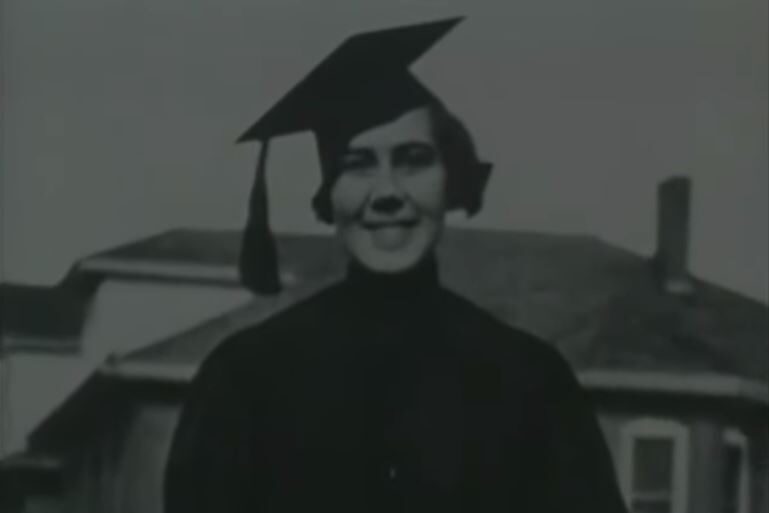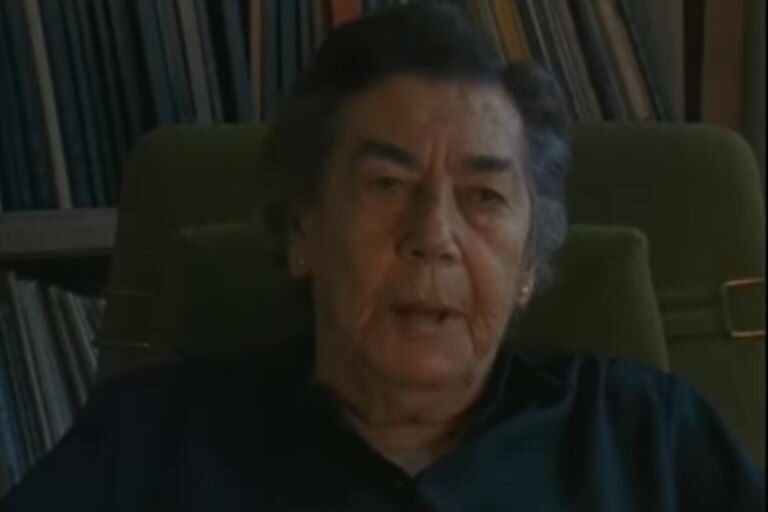
For a long time, gay people were considered mentally ill. They were subjected to lobotomies and chemical castration. At the urging of one of her students, research psychologist Dr. Evelyn Hooker decided to test this theory, against not only the scientific establishment of the 1950s, but political and societal ones as well.
“She had the forces of religion, the forces of law, and the forces of mental health professionals all saying that's inevitably the way it was. They believed it and they believed it so much that it was startling that she would dare to suggest otherwise,” said psychologist, Dr. Glenda Russell, of Louisville, Colorado, who had the opportunity to meet Hooker. Russell is also a keeper of local LGBTQ history.
Evelyn Hooker grew up on Colorado’s Eastern Plains and studied at the University of Colorado Boulder.
“This was a woman who had grown up poor on the plains of Colorado. This is a woman whose parents, neither of whom went beyond the fourth grade. This is a woman who went to one-room school houses, who was almost just a tad under six feet tall while she was still in school and who was, we would say now, bullied as a result,” said Russell.
After graduating from CU, where she’d honed her research skills, Hooker went on to graduate work at Johns Hopkins and was hired by UCLA.
In addition to the difficulties of being a woman in a field dominated by men, Russell says Hooker was also bipolar, a highly-stigmatized condition. But it likely made her more empathetic.
“She was actually teaching as an adjunct professor at UCLA at the time because being a woman in the 1950s, that was the only kind of position that one could actually expect to have. And one of her students was challenging her when she was teaching the course of abnormal psychology about homosexuality,” said retired psychologist, Dr. Douglas Kimmel, co-author of “What A Light It Shed,” about Hooker’s trailblazing career.
Kimmel says the student ultimately convinced her to look into the prevailing thought about homosexuality. Not only did she begin a research project, she secured federal funding for it.
“The study was done in the 1950s, and so at that time, there was a great sense that homosexuality was a mental illness that had serious consequences, both for individuals (who) were often hospitalized and given extraordinary treatments trying to cure them,” said Kimmel. “They also had a number of theories that blamed the mother or the family constellation for causing it. And this created a great deal of distress among parents who were trying to raise their children in the proper way. And also, there was a great fear that somehow homosexuals were especially vulnerable for national security. And so there were purges both in the Army during World War II and also in the establishment in motion in the federal government, trying to root out homosexuals because they were somehow thought to be a threat or immoral or somehow not worthy of observing the country.”

Glenda Russell says Dr. Hooker, as an experimental psychologist, did excellent work in a way that other people might not have. “Because what she said was, ‘If you say this is a sickness, if you say homosexuality is a mental illness, then if I get together a bunch of people who are homosexual and I compare them with a bunch of people who are straight, then every person in that homosexual group should be sick in a distinctive kind of way,’” said Russell.
Dr. Hooker matched two groups of 30 men based on age, education and other factors. She specifically looked for people who were not in therapy, who were not in a psychiatric hospital, and who were not in prison, because those were the types of people who had been studied as homosexuals previously.
She gathered nationally-renowned experts to read the test results and they couldn’t tell the difference between the gay men and the straight men, said Russell. One researcher was so upset he wanted a do-over, “because he just couldn't believe it, and a lot of people couldn't believe it.”
“And the rest became history,” said Russell.
Kimmel says Dr. Hooker’s work still resonates.
“The psychological research that was an outgrowth of Evelyn's work has paid tremendous dividends to the lesbian and gay community over the years. We have used the techniques that she learned at the University of Colorado in doing psychological research to gather the data, present the findings, distribute them in peer review journals, and then translate that into amicus briefs and legislative activities that have changed the decisions of courts primarily, but in some cases also legislation, and has had dramatic effects that have radiated throughout the world.
While her groundbreaking research came in the 1950s, and indeed continued, it wasn’t until 1973 that the American Psychiatric Association removed homosexuality as a diagnosis from the all-important Diagnostic and Statistical Manual.
Russell indeed was able to meet Dr. Evelyn Hooker and mainly listened to her speak. “She was a very smart woman. And she was interesting and kind of fun. I mean, she had a nice sense of humor. And so I didn't have anything to say. I was sitting at the feet of somebody who had changed the universe in some important ways for LGBTQ people.”









